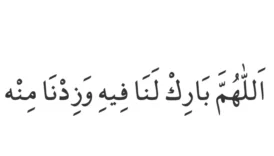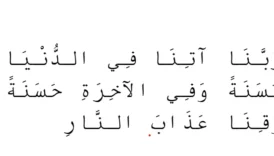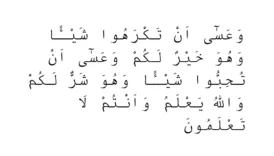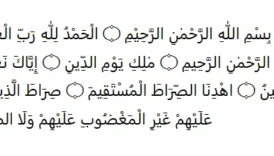Verses For Burning Jinn And Application Method
Which Quranic verses, known as “Jinn Burning Verses,” are recited to get rid of jinn affliction? How should these verses be recited, and what should be considered?
- Verses For Burning Jinn And Application Method
- Seeking Healing Through Ruqyah And Quranic Verses
- What Are The Verses Known As "Jinn Burning Verses"?
- Application Method And Points To Consider
- Recommended Verses And Their Meanings
- Surah Al-Baqarah, Verse 255 (Ayat al-Kursi)
- Surah Al-Baqarah, Verse 266
- Surah Aal-i Imran, Verse 10
- Surah Aal-i Imran, Verses 181-182
- Surah An-Nisa, Verse 56
- Surah As-Saffat, Verses 1-10
- Final Thoughts
According to Islamic belief, jinn, like humans, are creatures created by Allah and can interfere in our lives. Sometimes these interferences can be negative, leading to spiritual afflictions known as “jinn musallat” (jinn affliction or influence). In such cases, the method of “Ruqyah,” practiced and recommended by Prophet Muhammad (peace be upon him), is resorted to. Ruqyah involves reciting verses from the Holy Quran and supplications to seek healing and help from Allah. It is believed that certain verses have a particularly strong effect on jinn, causing them discomfort, driving them away, or even “burning” them through torment. Due to this belief, these verses are popularly known as “Jinn Burning Verses.” The term “burning” here generally refers to a spiritual effect, causing the jinn discomfort, forcing them to leave, or rendering them ineffective.
Seeking Healing Through Ruqyah And Quranic Verses
Ruqyah is a legitimate method of treatment and protection in Islam. Prophet Muhammad (pbuh) both performed ruqyah himself and taught his companions how to perform it. However, for ruqyah to be valid, certain conditions must be met:
- Must Be Done with Allah’s Words or Names and Attributes: Ruqyah should be performed using Quranic verses, Allah’s beautiful names (Asma ul Husna), or supplications whose meanings are understood and do not contain shirk (associating partners with Allah).
- Must Be in Arabic or Its Meaning Known: The meaning of the recited verses and supplications should be known.
- Belief that the Effect is from Allah: One must firmly believe that the healer is Allah Almighty Himself, not the recited verses or the person reciting them. Ruqyah is merely a means; healing comes from Allah.
Within this framework, it has been expressed through experience and the views of some scholars that certain verses are more effective against jinn-related afflictions.
What Are The Verses Known As “Jinn Burning Verses”?
Traditionally, the main verses believed to have a deterrent and disturbing effect on jinn, thus referred to as “Jinn Burning Verses,” are as follows (this list may vary slightly in different sources):
- Surah Al-Baqarah, Verse 255 (Ayat al-Kursi)
- Surah Al-Baqarah, Verse 266
- Surah Aal-i Imran, Verses 10, 181, 182
- Surah An-Nisa, Verse 56
- Surah Al-Ma’idah, Verse 37
- Surah Al-An’am, Verse 128
- Surah Al-Anfal, Verse 50
- Surah Ibrahim, Verses 15-17 and 49-50
- Surah Al-Hijr, Verses 16-17
- Surah Al-Kahf, Verse 29
- Surah Maryam, Verse 4 (Note: This verse is more related to supplication and pleading.)
- Surah Ta-Ha, Verse 98
- Surah Al-Anbiya, Verses 39, 68, 98
- Surah Al-Hajj, Verses 9, 19, 22
- Surah Al-Mu’minun, Verses 103-104
- Surah An-Naml, Verse 90
- Surah Al-Ankabut, Verse 24
- Surah Al-Ahzab, Verse 66
- Surah Fatir, Verses 36-37
- Surah As-Saffat, Verses 1-10
- Surah Az-Zumar, Verses 16, 19
- Surah Ghafir (Al-Mu’min), Verses 6, 72
- Surah Fussilat, Verse 40
- Surah Ad-Dukhan, Verses 43-50
- Surah Muhammad, Verse 15
- Surah An-Najm, Verse 1
- Surah Al-Qamar, Verse 4
- Surah Ar-Rahman, Verses 31-35
- Surah Al-Waqi’ah, Verses 51-54
- Surah Al-Mulk, Verse 5
- Surah Al-Jinn, Verses 8-9 and 14-15
- Surah Al-Buruj, Verse 10
- Surah At-Tariq, Verses 1-3
- Surah Al-Layl, Verses 14-16
- Surah Al-Humazah, Verses 4-8
It is observed that the vast majority of these verses speak of the punishment of disbelievers, devils, and jinn in the Hereafter, the Hellfire, Allah’s power, and His protection. It is believed that this content has a deterrent effect on malevolent entities.
Application Method And Points To Consider
The application method mentioned in the source text is as follows:
- Duration: Continue daily for 6 months.
- Recitation: The verses listed above are recited over water and oil (like olive oil). During recitation, the intention should be for healing, one should be in a state of ablution (wudu), and recite with reverence (khushu).
- Usage: The recited oil is applied to the body (especially on areas experiencing pain or discomfort), and the recited water is drunk.
- Consistency: It is emphasized that this practice should be carried out daily without interruption for 6 months. Patience and consistency are essential in spiritual treatments.
Points to Consider:
- Intention (Niyyah): The act should be done solely for the pleasure of Allah and with the intention of seeking healing.
- Faith (Tawakkul): One must have complete faith that the healer is Allah. The verses and the practice are merely means.
- Do Not Neglect Medical Treatment: Such spiritual practices are never a substitute for modern medicine. A doctor must be consulted for physical or psychological ailments. Ruqyah can be seen as spiritual support complementary to medical treatment.
- Avoid Incompetent Individuals: One must definitely stay away from charlatans and incompetent individuals who exploit people with claims of exorcising jinn or breaking spells. Incorrect practices can cause harm instead of benefit.
- Personal Situation: Ruqyah can have different effects on individuals. If unexpected or negative situations arise during the practice, a reliable scholar or a pious person experienced in this field must be consulted.
Recommended Verses And Their Meanings
Below are the Arabic text, transliteration, and meaning of some of the verses listed. (Since fitting the entire list into one article is difficult, the most well-known ones and those detailed in the source text are prioritized. For other verses, reliable Quran translations and commentaries should be consulted.)
Surah Al-Baqarah, Verse 255 (Ayat al-Kursi)
Arabic Text:
اَللّٰهُ لَٓا اِلٰهَ اِلَّا هُوَۚ اَلْحَيُّ الْقَيُّومُۚ لَا تَأْخُذُهُ سِنَةٌ وَلَا نَوْمٌۜ لَهُ مَا فِي السَّمٰوَاتِ وَمَا فِي الْاَرْضِۜ مَنْ ذَا الَّذ۪ي يَشْفَعُ عِنْدَهُٓ اِلَّا بِاِذْنِه۪ۜ يَعْلَمُ مَا بَيْنَ اَيْد۪يهِمْ وَمَا خَلْفَهُمْۚ وَلَا يُح۪يطُونَ بِشَيْءٍ مِنْ عِلْمِه۪ٓ اِلَّا بِمَا شَٓاءَۚ وَسِعَ كُرْسِيُّهُ السَّمٰوَاتَ وَالْاَرْضَۚ وَلَا يَؤُ۫دُهُ حِفْظُهُمَاۚ وَهُوَ الْعَلِيُّ الْعَظ۪يمُ
Transliteration:
Allâhu lâ ilâhe illâ huwe-lhayyu-lkayyûm(u)(c) lâ te/khużuhu sinetun welâ newm(un)(c) lehu mâ fî-ssemâwâti wemâ fi-l-ard(i)(k) men żelleżî yeşfe’u ‘indehu illâ bi-iżnih(i)(c) ya’lemu mâ beyne eydîhim wemâ khalfehum(s) welâ yuhîtûne bişey-in min ‘ilmihi illâ bimâ şâe(c) wesi’a kursiyyuhu-ssemâwâti wel-ard(a)(s) welâ yeûduhu hifżuhumâ wehuwe-l’aliyyu-l’ażîm(u)
Meaning:
Allah – there is no deity except Him, the Ever-Living, the Sustainer of [all] existence. Neither drowsiness overtakes Him nor sleep. To Him belongs whatever is in the heavens and whatever is on the earth. Who is it that can intercede with Him except by His permission? He knows what is [presently] before them and what will be after them, and they encompass not a thing of His knowledge except for what He wills. His Kursi (Throne/Footstool) extends over the heavens and the earth, and their preservation tires Him not. And He is the Most High, the Most Great.
(Ayat al-Kursi is one of the verses that most powerfully expresses the majesty, power of Allah, and that there is no god but Him. For this reason, its recitation is recommended for protection and healing.)
Surah Al-Baqarah, Verse 266
Arabic Text:
اَيَوَدُّ اَحَدُكُمْ اَنْ تَكُونَ لَهُ جَنَّةٌ مِنْ نَخ۪يلٍ وَاَعْنَابٍ تَجْر۪ي مِنْ تَحْتِهَا الْاَنْهَارُۙ لَهُ ف۪يهَا مِنْ كُلِّ الثَّمَرَاتِۙ وَاَصَابَهُ الْكِبَرُ وَلَهُ ذُرِّيَّةٌ ضُعَفَٓاءُۖ فَاَصَابَهَٓا اِعْصَارٌ ف۪يهِ نَارٌ فَاحْتَرَقَتْۜ كَذٰلِكَ يُبَيِّنُ اللّٰهُ لَكُمُ الْاٰيَاتِ لَعَلَّكُمْ تَتَفَكَّرُونَ۟
Transliteration:
Eyeweddu ehadukum en tekûne lehu cennetun min nekhîlin wea’nâbin tecrî min tahtihe-l-enhâru lehu fîhâ min kulli-śśemerâti weesâbehu-lkiberu welehu żurriyyetun du’afâe feasâbehâ i’sârun fîhi nârun fahterakat(k) keżâlike yubeyyinu(A)llâhu lekumu-l-âyâti le’allekum tetefekkerûn(e)
Meaning:
Would one of you like to have a garden of palm trees and grapevines underneath which rivers flow in which he has from every fruit? But he is afflicted with old age and has weak offspring, and it is hit by a whirlwind containing fire and is burned up? Thus does Allah make clear to you His verses that you might give thought.
(This verse strikingly illustrates the transience of worldly blessings and how they can be destroyed by a sudden catastrophe. It is thought to be used in ruqyah due to its themes of “burning” and “fire”.)
Surah Aal-i Imran, Verse 10
Arabic Text:
اِنَّ الَّذ۪ينَ كَفَرُوا لَنْ تُغْنِيَ عَنْهُمْ اَمْوَالُهُمْ وَلَٓا اَوْلَادُهُمْ مِنَ اللّٰهِ شَيْـًٔاۜ وَاُو۬لٰٓئِكَ هُمْ وَقُودُ النَّارِ
Transliteration:
İnne-lleżîne keferû len tuġniye ‘anhum emwâluhum welâ ewlâduhum mina(A)llâhi şey-â(en)(s) weulâ-ike hum weqûdu-nnâr(i)
Meaning:
Indeed, those who disbelieve – never will their wealth or their children avail them against Allah at all. And it is they who are fuel for the Fire.
Surah Aal-i Imran, Verses 181-182
Arabic Text:
181: لَقَدْ سَمِعَ اللّٰهُ قَوْلَ الَّذ۪ينَ قَالُٓوا اِنَّ اللّٰهَ فَق۪يرٌ وَنَحْنُ اَغْنِيَٓاءُۢ سَنَكْتُبُ مَا قَالُوا وَقَتْلَهُمُ الْاَنْبِيَٓاءَ بِغَيْرِ حَقٍّۙ وَنَقُولُ ذُوقُوا عَذَابَ الْحَر۪يقِ
182: ذٰلِكَ بِمَا قَدَّمَتْ اَيْد۪يكُمْ وَاَنَّ اللّٰهَ لَيْسَ بِظَلَّامٍ لِلْعَب۪يدِۚ
Transliteration:
(Translation provided)
Meaning:
181: Allah has certainly heard the statement of those [Jews] who said, “Indeed, Allah is poor, while we are rich.” We will record what they said and their killing of the prophets without right and will say, “Taste the punishment of the Burning Fire.” 182: That is for what your hands have put forth [of evil] and because Allah is not ever unjust to [His] servants.”
(These verses emphasize the painful end and Hellfire punishment for disbelievers and wrongdoers.)
Surah An-Nisa, Verse 56
Arabic Text:
اِنَّ الَّذ۪ينَ كَفَرُوا بِاٰيَاتِنَا سَوْفَ نُصْل۪يهِمْ نَارًاۜ كُلَّمَا نَضِجَتْ جُلُودُهُمْ بَدَّلْنَاهُمْ جُلُودًا غَيْرَهَا لِيَذُوقُوا الْعَذَابَۜ اِنَّ اللّٰهَ كَانَ عَز۪يزًا حَك۪يمًا
Transliteration:
İnne-lleżîne keferû bi-âyâtinâ sewfe nuslîhim nâran kullemâ nadicet culûduhum beddelnâhum culûden ġayrahâ liyeżûqû-l’ażâb(e)(k) inna(A)llâhe kâne ‘azîzen hakîmâ(n)
Meaning:
Indeed, those who disbelieve in Our verses – We will drive them into a Fire. Every time their skins are roasted through We will replace them with other skins so they may taste the punishment. Indeed, Allah is ever Exalted in Might and Wise.
(This verse, describing the continuity and severity of Hell’s punishment, is also believed to have a deterrent effect.)
Surah As-Saffat, Verses 1-10
Arabic Text:
1: وَالصَّٓافَّاتِ صَفًّاۙ ﴿1﴾ 2: فَالزَّاجِرَاتِ زَجْرًاۙ ﴿2﴾ 3: فَالتَّالِيَاتِ ذِكْرًاۙ ﴿3﴾ 4: اِنَّ اِلٰهَكُمْ لَوَاحِدٌۙ ﴿4﴾ 5: رَبُّ السَّمٰوَاتِ وَالْاَرْضِ وَمَا بَيْنَهُمَا وَرَبُّ الْمَشَارِقِۜ ﴿5﴾ 6: اِنَّا زَيَّنَّا السَّمَٓاءَ الدُّنْيَا بِز۪ينَةٍۨ الْكَوَاكِبِۙ ﴿6﴾ 7: وَحِفْظًا مِنْ كُلِّ شَيْطَانٍ مَارِدٍۚ ﴿7﴾ 8: لَا يَسَّمَّعُونَ اِلَى الْمَلَاِ الْاَعْلٰى وَيُقْذَفُونَ مِنْ كُلِّ جَانِبٍۗ ﴿8﴾ 9: دُحُورًا وَلَهُمْ عَذَابٌ وَاصِبٌۙ ﴿9﴾ 10: اِلَّا مَنْ خَطِفَ الْخَطْفَةَ فَاَتْبَعَهُ شِهَابٌ ثَاقِبٌ ﴿10﴾
Transliteration:
1: We-ssâffâti saffâ(n). 2: Fe-zzâcirâti zecrâ(n). 3: Fe-ttâliyâti żikrâ(n). 4: İnne ilâhekum lewâhid(un). 5: Rabbu-ssemâwâti wel-ardi wemâ beynehumâ we rabbu-lmeşârik(i). 6: İnnâ zeyyennâ-ssemâe-ddunyâ bizînetin(i)lkewâkib(i). 7: We hifżan min kulli şeytânin mârid(in). 8: Lâ yessemme’ûne ilâ-lmele-i-l-a’lâ weyukżefûne min kulli cânib(in). 9: Duhûrâ(an)(s) welehum ‘ażâbun wâsib(un). 10: İllâ men khaṭife-l khaṭfete feetbe’ahu şihâbun śâkib(un).
Meaning:
1: By those [angels] lined up in rows, 2: And those who drive [the clouds] forward, 3: And those who recite the message [i.e., the Qur’an], 4: Indeed, your God is One, 5: Lord of the heavens and the earth and that between them and Lord of the sunrises. 6: Indeed, We have adorned the nearest heaven with an adornment of stars 7: And as protection against every rebellious devil, 8: [So] they may not listen to the exalted assembly [of angels] and are pelted from every side, 9: Repelled; and for them is a perpetual punishment, 10: Except one who snatches [some words] by theft, but they are pursued by a burning flame, piercing [in brightness].
(These verses describe the protection of the heavens from devils and the shooting stars (shihab) thrown at them. For this reason, their recitation against devils and jinn is common.)
(For the Arabic text, transliteration, and meaning of the other verses, consulting reliable Quran translations and commentary sources is recommended.)
Final Thoughts
The Holy Quran, in its entirety, is a source of healing and mercy. While there are beliefs and experiences suggesting that certain verses have a more specific effect against certain ailments, Allah knows best. When reciting or having these verses, known as “Jinn Burning Verses,” recited, it is essential that the intention is sincere, healing is sought from Allah, and His words are approached with complete submission. It should not be forgotten that ruqyah practices are spiritual support and do not eliminate the need for medical treatment. Seeking refuge in our Lord in all situations, asking for His help, and trusting in His infinite mercy is the believer’s strongest weapon.
Bibliography
- The Holy Qur’an.
- Al-Bukhari, Muhammad ibn Isma’il. Sahih al-Bukhari. (Chapters on Medicine and Ruqyah).
- Muslim ibn al-Hajjaj. Sahih Muslim. (Chapters on Greetings and Ruqyah).
- Al-Tabari, Muhammad ibn Jarir. Jami’ al-Bayan ‘an Ta’wil ay al-Qur’an (Tafsir al-Tabari).
- Ibn Kathir, ‘Imad al-Din Abu ‘l-Fida Isma’il ibn ‘Umar. Tafsir al-Qur’an al-‘Azim.
- Al-Qurtubi, Abu ‘Abdillah Muhammad ibn Ahmad. Al-Jami’ li-Ahkam al-Qur’an.
- Al-Razi, Fakhr al-Din. Mafatih al-Ghayb (Tafsir al-Kabir).
Views: 0





